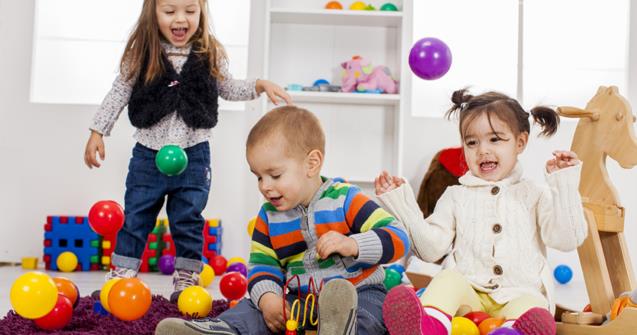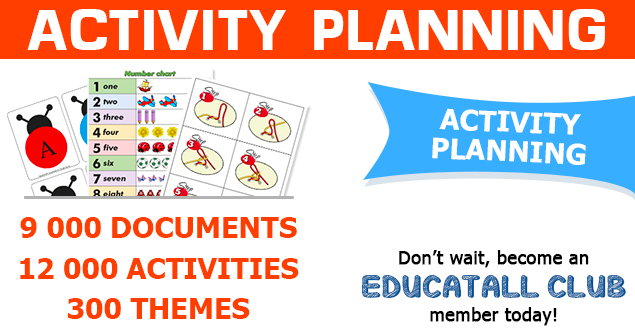
Why should I choose to work in my daycare’s nursery?
Hello,
I have questions about working in a nursery.
- Which factors should motivate an early childhood educator to want to work in a nursery?
- Beyond caring for little ones, what are the main responsibilities of an early childhood educator who works in a nursery?
- Do evaluation and recognition systems exist for expressing, among other things, our appreciation for very young children’s behaviour (rewards/ consequences)? If they do, what do they look like and how can they be used?
Thank you in advance.
Patricia, who is interested in working in the nursery
Hello,
The main reason that should motivate you to work in the nursery is the same reason that should motivate you to work with older children: working with this age group must make you happy.
I worked in a nursery for many years. I must say that I instantly loved it. I enjoy watching babies discover new things that are part of their little world for the first time so much.
Nonetheless, there are certain qualities that I consider very important for working with babies.
Respecting each child’s pace
Each child develops at his own pace. When working in a nursery, respecting this principle is of utmost importance. Each baby has his own routine. In a nursery, children don’t necessarily all sleep and eat at the same time.
Children develop very rapidly. Each baby may acquire different things at varying ages. For example, some children may walk at 12 months while others may not be ready for this challenge. You must consider each child’s individual stage.
Observation skills
Since very young children speak very little or not at all, their early childhood educator must satisfy their needs, understand them, and respect their interests to plan and offer activities they will enjoy.
Observation will help you get to know the babies you care for and anticipate their needs. Their non-verbal behaviour represents what they wish to communicate.
The ability to work as a team
Very often, two or three early childhood educators work as a team in the nursery. The ability to communicate and get along with the other early childhood educators is extremely important.
To work in a nursery, you must enjoy working with others. Those who work in a nursery are a lot like a small family.
Gentleness
Being able to hold and cuddle the babies under your care helps develop a bond and emotional trust, factors that play an important role in their development.
Responsibility
Of course, caring for babies is a major responsibility. Beyond that, you are responsible for creating activities that are adapted to the children under your care as well as communicating with parents, both verbally and in writing.
Effectively communicating with parents is extremely important. This often involves reassuring them about daily life and their child’s development. If, as an early childhood educator, you are unable to reassure them, you must redirect them to professionals who will.
Working in a nursery does not involve planning and presenting very elaborate activities. Organizing complicated activities will only deplete your energy levels. What’s more, they don’t interest babies.
As previously mentioned, you will quickly develop the ability to decode each child’s needs. For example, if you notice that a baby enjoys filling and emptying his bowl with fruit, you can simply provide him with a variety of containers and toys he can fill and empty with a wide range of elements.
In general, it is best to focus on the five senses. Babies use their senses to explore and discover their world. They like to touch and taste things as well as listen to the sounds that are present in their environment and observe their little world.
Offering fun and stimulating activities that will help babies explore their senses is always a good idea.
Keep in mind that children learn when they are having fun.
Another approach that can easily complement the exploration of their five senses is to use the actions that children enjoy such as crawling, filling, drawing, etc. by integrating them in your activities as much as possible.
As for your last question, I don’t think rewards and consequences apply to very young children. A positive approach that involves showing children appropriate behaviour and redirecting them towards adequate actions is best.
Babies have a lot to learn in terms of acceptable and unacceptable behaviour. They may, for example, pull another child’s hair to explore cause and effect around 6 months of age. In doing so, they realize that if they pull a child’s hair, the other child screams. In a nursery, instead of punishing a child for this behaviour, the goal would be to intervene positively. You could simply repeat the word “gentle, gentle” as you slide your hand under his and help him caress the other child’s hair to demonstrate appropriate behaviour.
Afterwards, you could redirect the child towards another activity, such as pulling grass to address his need to pull.
Good luck!
Chantal Millette, Early childhood educator

 Home
Home Theme activities
Theme activities
 Babies and toddlers
Babies and toddlers
 Arts and crafts
Arts and crafts
 Science
Science
 Creative recipes
Creative recipes
 Tips and tricks
Tips and tricks
 Special needs
Special needs
 Extra activities
Extra activities
 Educ-TV
Educ-TV
 Newsletter
Newsletter  Online store
Online store Educatall club
Educatall club

